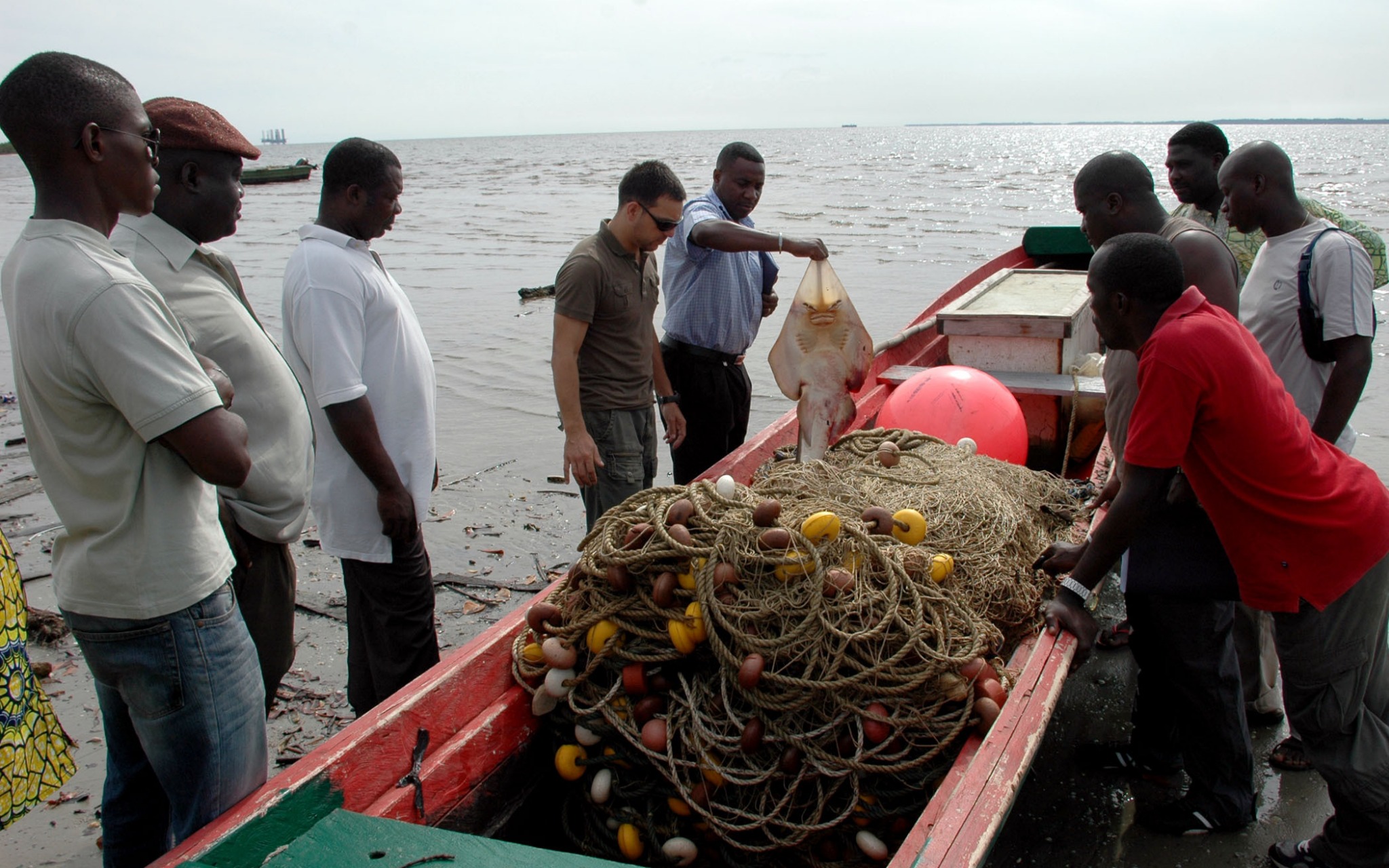APS Spawns Collaborative Fisheries Workshop in Gabon
By David Holmes, U.S. Naval Forces Europe-Africa/U.S. Sixth Fleet
PORT GENTIL, Gabon — As the saying goes, "Give a man a fish, and he'll eat for a day. Teach a man to fish, and he'll eat for a lifetime." Wise words, but what happens to the man, his family and his village when there are no more fish left to catch?
Although the cause for a plummeting fish population can be a culmination of contributing factors such as pollution, overfishing and an imbalance in the food chain, the management of fisheries has been a centuries-old tradition practiced to ensure the prosperity of generations to come. In this modern era, the importance of maintaining fisheries is no different.

A fishery encompasses not just the species or type of fish, but the people involved, method of fishing, area of water or seabed, class of boats and purpose of the activities.
Each of these components plays a critical role in the delicate balance of a fishery's destiny to perish or flourish.
USS Nashville, Africa Partnership Station's representative platform in West and Central Africa, visited Gabon's island-city of Port Gentile, April 20-May 1, during which a fisheries workshop specifically-tailored for Gabon's naval fisheries enforcement personnel was held. The workshop covered topics on related maritime laws, local species identification, and methods and effects of industrial trawling and artisanal fishing.
"The most important thing to take away from this workshop, for all of us, is understanding the vital need of fisheries," said Portugal navy Lt. Cmdr. Antonio Mourinha, fisheries workshop facilitator and member of APS Nashville's development advisory team. "Fisheries are a reliable way to provide local fishing communities a yield of revenue for their country. West Africa's fisheries are something that is globally important for economical and ecological reasons. If we don't protect them and implement a management strategy, in as little as a few years many could be lost completely."
Presently, 75 percent of worldwide fish stocks are estimated to be overfished with several major fish populations collapsing, according to The Food and Agriculture Organization of the United Nations. The situation is so grim most seafood stocks around the world may collapse by 2050 if fishing continues at its current rate, says a study published in the journal Science. African fisheries are feeling the effects of this ever-growing global crisis because many countries in the region are strained with limited surveillance and enforcement capacities.
These realities create pressures not only on local fisheries, but the coastal economies and peoples that rely upon them.
"The APS goal of assisting maritime safety and security through collaborations such as this fisheries workshop is a good initiative toward solving maritime issues we face," said Gabon navy Maritime Patrolman Jean Bruno Mbadinga. "I hope this partnership continues, and it is my hope that we could possibly form a fisheries information center here to better solve these maritime difficulties."
During the week-long fisheries workshop, held on Port Gentil's naval base, participants spent a day venturing to fish markets, a fishing village and an industrial port catering to trawlers. While the group identified local species and reviewed the various types of fishing gear nets, lines and seines, they also spoke with local fishermen about dilemmas they face day-to-day.
"While we visited the fishing village of Matanda, their chief told me that every day there are less fish in the sea, and that industrial trawlers sometimes end up damaging his artisans' nets and lines," said Mourinha.
The artisanal sector dominates employment in the fishing industry in West Africa, and fish are vital to its domestic food security because fish consumption is well above global averages, according to FAO.
"I think the food security for the population of fishing villages like this one is extremely important because they depend heavily on the fish for their survival," said Mourinha. "These villages have the expertise to be at sea, catch fish, and then process and sell it as well. If their own waters are being overfished, whether by their own local boats or by industrial trawlers, their entire way of life is at stake and only complicates issues further and creates additional threats to maritime safety and security."
APS Nashville, part of the multinational initiative developed by Commander, U.S. Naval Forces Europe-Commander, U.S. Naval Forces Africa, works cooperatively with U.S. and international partners to enhance maritime safety and security on the African continent.
